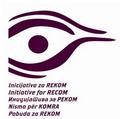‘Judicial justice does not acknowledge the victims’
 Belgrade – Nataša Kandić argues that the judgments rendered in the Gotovina, Markač and Perišić cases have demonstrated the limitations of a criminal justice which does not take due account of the victims of the wars.
Belgrade – Nataša Kandić argues that the judgments rendered in the Gotovina, Markač and Perišić cases have demonstrated the limitations of a criminal justice which does not take due account of the victims of the wars.
In presenting a report in Belgrade on transitional justice in post-Yugoslav countries, the Regional Coordinator of the RECOM Process said that as a result of the judgments in question the principle of command responsibility and the concept of joint criminal enterprise have practically lost all relevance in the ongoing trials of persons accused of war crimes.
‘Since there is no institutional mechanism in place at regional or national level which could help to overcome the shortcomings of criminal justice, civil society has offered, through the Initiative for RECOM, a new approach to reconciliation based on the need to put an end to the practice of remembering the past in terms of the number of victims,’ she said.
Kandić said that it was necessary to identify all the victims of the wars of the 1990s and that completing the lists of those victims in the course of the next few years would be a major achievement for the civil sector.
Commenting on the characteristics of the process of dealing with the past in the states established following the dissolution of the former Yugoslavia, she said that in all of them save Macedonia trials of war crimes were the most important institutional instrument for dealing with the legacy of the 1990s wars.
‘In all the post-Yugoslav states, trials of war crimes are taking too long and the victims are not adequately informed about their role in these trials, as a result of which they often experience new traumas during their confrontation with the perpetrators because the judges insist that they should focus on particular incidents,’ Kandić said.
Practice has shown, she said, that victims are often biased towards accused persons belonging to their own ethnic community and very hostile towards accused persons belonging to a different ethnic group.
Kandić said that the process of dealing with the past in Serbia was somewhat specific above all in view of the situation concerning Kosovo.
‘For Serbia, the key issue is not being given a date for the start of negotiations for EU membership but a normalization of relations with Kosovo. What is necessary is a new approach implying the recognition of the Kosovo institutions by Belgrade as a precondition of a better life for the Serbs in Kosovo and the establishment of good neighbourly relations between the two states,’ she said.
The Executive Director of the Humanitarian Law Centre, Sandra Orlović, said that the 10-year practice of the Belgrade War Crimes Court has shown that the speed at which crimes are being processed, in view of their serious nature, is absolutely unsatisfactory.
‘In the ten years it has been in operation, the Belgrade War Crimes Court has sentenced finally 64 persons and acquitted of the charges 15, with 57 persons still being tried. Furthermore, since 2010 there has been a negative trend in prosecutorial policy resulting in diminishing numbers of persons charged with war crimes each year,’ Orlović said.
She said that the problems in Serbia include the non-application of the institution of command responsibility in respect of members of the army and the police as well as poor protection of witnesses in judicial proceedings, particularly former policemen and soldiers.
The transitional justice report encompasses the judicial proceedings for war crimes committed between 1991 and 1999 in countries of the former Yugoslavia, the institutional reforms concerning lustration, the attitude of the public and institutions towards convicted persons, the media coverage of the crimes and the questions of missing persons and refugee returns.
Mario Mažić said that there was progress in trials of war crimes in Croatia because it was now possible to use ICTY evidence in domestic trials of war crimes. While the cooperation of the prosecuting authorities in the region is useful when trying to address the problems besetting the courts, the lack of a special prosecutor’s office remains a major issue, he said. ‘Another major problem is the partiality of the courts, which accept youth and patriotic fervour as mitigating circumstances when trying Croats and deny the same to non-Croat defenders,’ he said.
Mažić pointed out that President Ivo Josipović’s strong support for the RECOM Process was recently confirmed by the appointment of his personal envoy to the Expert Group for RECOM.
Denisa Kostovicova, editor of the No. 4 issue of the Forum for Transitional Justice, presented the periodical, which is the fruit of a series of dialogues between non-governmental organizations and European Commission researchers concerned with transitional justice.
Kostovicova said that the European Union was beginning to reappraise its role in and approach to transitional justice which had been focused primarily on trials through its conditionality policy.
‘Bearing in mind that the European integration of the Balkans is a response to the war and instability, it is paradoxical that in its approach to the region of the former Yugoslavia, through the Stabilization and Association Process, the European Union has actually avoided directly addressing the matter of dealing with the past outside the ICTY proceedings,’ she said.
The dialogue within the European Commission has pointed up the potential and significance of civil society and of RECOM in particular as a regional initiative stemming from civil society.
‘The international community is following the RECOM Process with particular attention because, unlike the former truth and reconciliation commissions, it is a regional initiative stemming from civil society, which makes it especially interesting to researchers concerned with conflicts in Africa and the Caucasus region, which are as transnational as the conflicts in the former Yugoslavia.’
The report was prepared jointly the Belgrade Humanitarian Law Centre, the Humanitarian Law Centre of Kosovo, the Youth Initiative for Human Rights in Croatia, the Sarajevo NGO Transitional Justice, Accountability and Remembrance, the Banjaluka Centre for Democracy and Transitional Justice and the Centre for Research and Policy Making in Macedonia.






